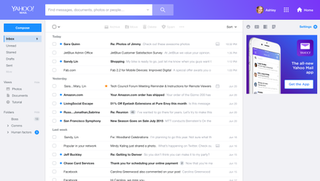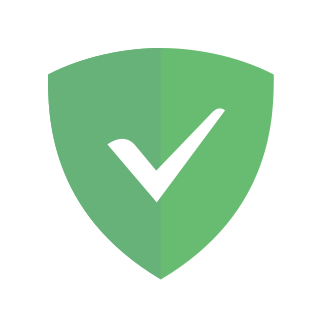The Web 2.0 Suicide Machine is a service that helps users tired of MySpace, LinkedIn and Twitter, to "commit suicide in social networks", by automatically "removing their private content and friend relationships" (but without deleting or deactivating their accounts). [1] [2] [3] [4] [5] The service is part of the non-profit foundation WORM, based in Rotterdam, Netherlands. [2]
The "Web 2.0 Suicide Machine" has, as of January 2010, assisted with more than 1,000 virtual deaths, ending more than 80,500 friendships on Facebook and removing 276,000 tweets from Twitter. [4]
Rather than deleting user accounts, it removes private content and friendships. To start the suicide process, the user has to provide their login credential for the social network from which they want to be deleted, and then "watch your life passing by and reflect upon your real & virtual friends", while private content and friend relationships are removed. In the end the user is included in a memorial album of all the suicides, with their profile picture, their name and their "last words". [1]
"Web 2.0 Suicide Machine" has listed the functions of which the service is capable thus far as the following: [1]
The Facebook option is no longer available on Web 2.0 Suicide Machine as Facebook sent a cease and desist (C&D) letter on January 6, 2010, demanding that suicidemachine.org stop their actions. [6]
In January 2010, Facebook managed to block the service for a short time [3] and sent a cease and desist letter from its lawyers. [2] The service remained up and running, but the website has since ceased operation. Its creators "consider this project as a piece of socio-political net art". [2]

Yahoo! Mail is an email service launched on October 8, 1997, by the American company Yahoo, Inc. The service is free for personal use, with an optional monthly fee for additional features. Business email was previously available with the Yahoo! Small Business brand, before it transitioned to Verizon Small Business Essentials in early 2022. As of January 2020, Yahoo! Mail has 225 million users.

YTMND, an initialism for "You're the Man Now, Dog", is an online community centered on the creation of hosted memetic web pages featuring a juxtaposition of an image centered or tiled along with optional large zooming text and a looping sound file. Images and sound files used in YTMNDs are usually either created or edited by users. YTMND is generally considered to be a humor website, owing its tone and culture to the original YTMND and its early imitators.

Password strength is a measure of the effectiveness of a password against guessing or brute-force attacks. In its usual form, it estimates how many trials an attacker who does not have direct access to the password would need, on average, to guess it correctly. The strength of a password is a function of length, complexity, and unpredictability.
A Google Account is a user account that is required for access, authentication and authorization to certain online Google services. It is also often used as single sign on for third party services.

Twitter is an American microblogging and social networking service on which users post and interact with messages known as "tweets". Registered users can post, like, and retweet tweets, however, unregistered users have the ability to only read tweets that are publicly available. Users interact with Twitter through browser or mobile frontend software, or programmatically via its APIs. Prior to April 2020, services were accessible via SMS. The service is provided by Twitter, Inc., a corporation based in San Francisco, California, and has more than 25 offices around the world. Tweets were originally restricted to 140 characters, but the limit was doubled to 280 for non-CJK languages in November 2017. Audio and video tweets remain limited to 140 seconds for most accounts.
Facebookhas been the subject of criticism and legal action. Criticisms include the outsize influence Facebook has on the lives and health of its users and employees, as well as Facebook's influence on the way media, specifically news, is reported and distributed. Notable issues include Internet privacy, such as use of a widespread "like" button on third-party websites tracking users, possible indefinite records of user information, automatic facial recognition software, and its role in the workplace, including employer-employee account disclosure. The use of Facebook can have negative psychological effects that include feelings of sexual jealousy, and stress, a lack of attention, and social media addiction that in some cases is comparable to drug addiction.
Google Friend Connect was a free social networking site from 2008 to 2012. Similar to Facebook Platform and MySpaceID, it took a decentralized approach, allowing users to build a profile to share and update information via third-party sites. These sites acted as a host for profile sharing and social exchanges.
Fotki is a digital photo sharing, video sharing and media social network website and web service suite; it is one of the world's largest social networking sites. Fotki licenses photo-sharing software for many global companies, such as Telecom Italia, Alice.it, Sears, Mark Travel, Vegas.com, Funjet.com etc.
LastPass is a freemium password manager that stores encrypted passwords online. The standard version of LastPass comes with a web interface, but also includes plugins for various web browsers and apps for many smartphones. It also includes support for bookmarklets. LogMeIn, Inc. acquired LastPass in October 2015. On December 14, 2021, LogMeIn announced that LastPass would be made into a separate company and accelerate its release timeline.
Digital inheritance is the passing down of digital assets to designated beneficiaries after a person’s death as part of the estate of the deceased. The process includes understanding what digital assets exist and navigating the rights for heirs to access and use those digital assets after a person has died.

TweetDeck is a social media dashboard application for management of Twitter accounts. Originally an independent app, TweetDeck was subsequently acquired by Twitter Inc. and integrated into Twitter's interface. It has long ranked as one of the most popular Twitter clients by percentage of tweets posted, alongside the official Twitter web client and the official apps for iPhone and Android.
A recent extension to the cultural relationship with death is the increasing number of people who die having created a large amount of digital content, such as social media profiles, that will remain after death. This may result in concern and confusion, because of automated features of dormant accounts, uncertainty of the deceased's preferences that profiles be deleted or left as a memorial, and whether information that may violate the deceased's privacy should be made accessible to family.
Censorship of Twitter refers to Internet censorship by governments that block access to Twitter. Twitter censorship also includes governmental notice and take down requests to Twitter, which Twitter enforces in accordance with its Terms of Service when a government or authority submits a valid removal request to Twitter indicating that specific content is illegal in their jurisdiction.

Internet censorship in South Korea is prevalent, and contains some unique elements such as the blocking of pro-North Korea websites, and to a lesser extent, Japanese websites, which led to it being categorized as "pervasive" in the conflict/security area by OpenNet Initiative. South Korea is also one of the few developed countries where pornography is largely illegal, with the exception of social media websites which are a common source of legal pornography in the country. Any and all material deemed "harmful" or subversive by the state is censored. The country also has a "cyber defamation law", which allow the police to crack down on comments deemed "hateful" without any reports from victims, with citizens being sentenced for such offenses.

Instagram is an American photo and video sharing social networking service founded in 2010 by Kevin Systrom and Mike Krieger, and later acquired by Facebook Inc.. The app allows users to upload media that can be edited with filters and organized by hashtags and geographical tagging. Posts can be shared publicly or with preapproved followers. Users can browse other users' content by tag and location, view trending content, like photos, and follow other users to add their content to a personal feed.
Since the arrival of early social networking sites in the early 2000s, online social networking platforms have expanded exponentially, with the biggest names in social media in the mid-2010s being Facebook, Instagram, Twitter and Snapchat. The massive influx of personal information that has become available online and stored in the cloud has put user privacy at the forefront of discussion regarding the database's ability to safely store such personal information. The extent to which users and social media platform administrators can access user profiles has become a new topic of ethical consideration, and the legality, awareness, and boundaries of subsequent privacy violations are critical concerns in advance of the technological age.

Proton Mail is an end-to-end encrypted email service founded in 2013 in Geneva, Switzerland. Proton Mail uses client-side encryption to protect email content and user data before they are sent to Proton Mail servers, unlike other common email providers such as Gmail and Outlook.com. The service can be accessed through a webmail client, the Tor network, or dedicated iOS and Android apps.
Criticism of Dropbox, an American company specializing in cloud storage and file synchronization and their flagship service of the same name, centers around various forms of security and privacy controversies. Issues include a June 2011 authentication problem that let accounts be accessed for several hours without passwords; a July 2011 privacy policy update with language suggesting Dropbox had ownership of users' data; concerns about Dropbox employee access to users' information; July 2012 email spam with reoccurrence in February 2013; leaked government documents in June 2013 with information that Dropbox was being considered for inclusion in the National Security Agency's PRISM surveillance program; a July 2014 comment from NSA whistleblower Edward Snowden criticizing Dropbox's encryption; the leak of 68 million account passwords on the Internet in August 2016; and a January 2017 accidental data restoration incident where years-old supposedly deleted files reappeared in users' accounts.

AdGuard Software Limited develops ad blocking and privacy protection software. Some of AdGuard's products are open-source, some are free, and some are shareware. AdGuard's DNS app supports Microsoft Windows, Linux, macOS, Android and iOS. AdGuard is also available as a browser extension.
Meta Platforms Inc., or Meta for short, has faced a number of privacy concerns. These stem partly from the company’s revenue model that involves selling information collected about its users for many things including advertisement targeting. Meta Platforms Inc. has also been a part of many data breaches that have occurred within the company. These issues and others are further described including user data concerns, vulnerabilities in the company’s platform, investigations by pressure groups and government agencies, and even issues with students. In addition, employers and other organizations/individuals have been known to use Meta Platforms Inc. for their own purposes. As a result, individuals’ identities and private information have sometimes been compromised without their permission. In response to these growing privacy concerns, some pressure groups and government agencies have increasingly asserted the users’ right to privacy and to be able to control their personal data.